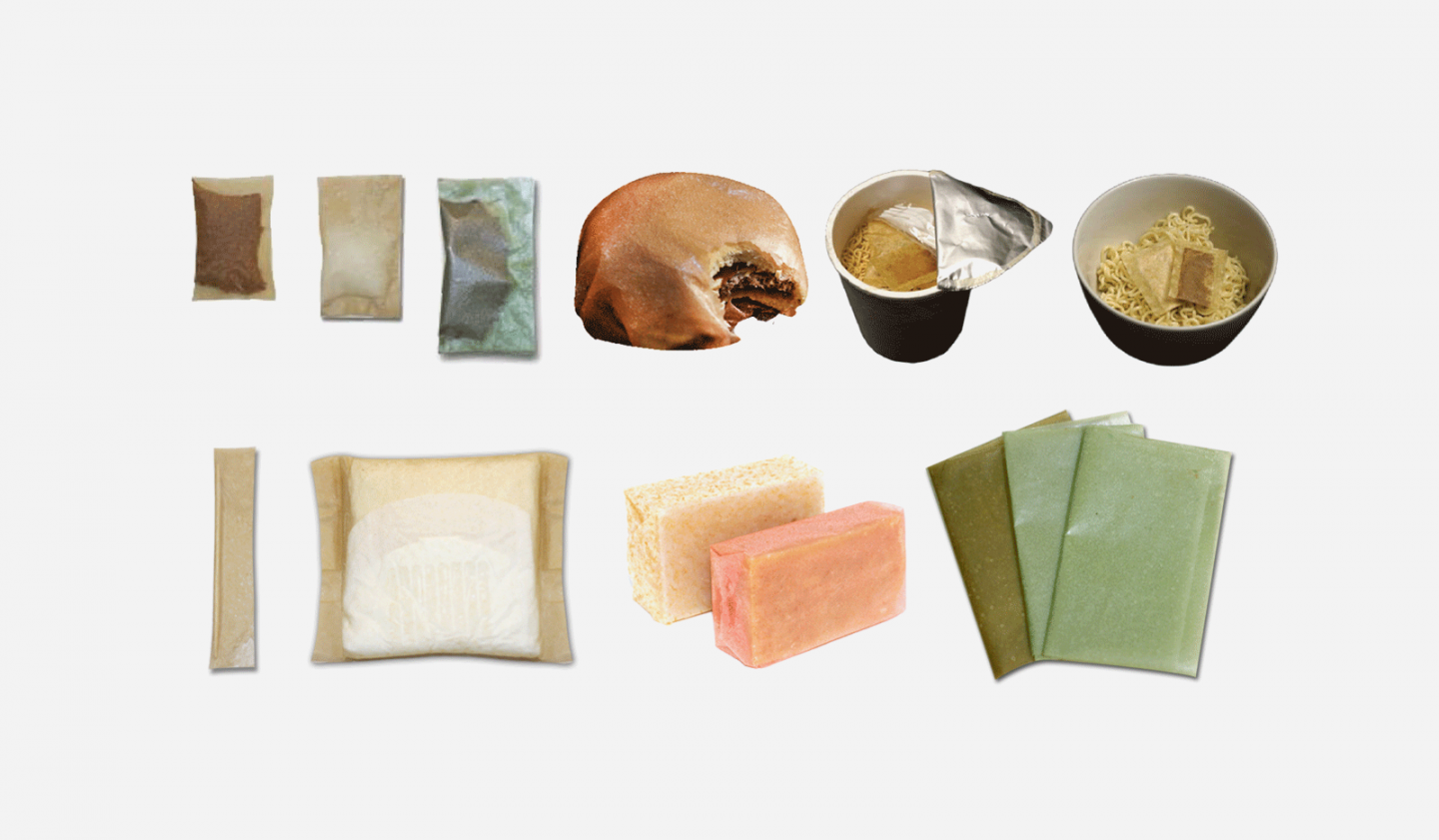5 alternative materials to single-use plastic and petroleum-based plastics.
Plastic production has resulted in rapid economic development and technological advancement; plastics are strong, flexible and can be moulded (and 3D printed) into a variety of designs. However, petroleum-based plastics take hundreds of years to decompose, and although the majority of plastics can be recycled, it has been reported that only 5 per cent of annual plastic waste — drink bottles, toiletry containers and food wrappings — get placed back into the production cycle. With the rest of the plastic waste being dumped into landfills, polluting natural ecosystems, there is an urgent demand for recycled plastics and bioplastics to replace the ongoing production of single-use (petroleum-based) plastics.
Bioplastics is an umbrella term, encompassing materials that can be used like plastic but are constructed from organic biomass such as wood chips, food waste and corn starch. Unlike petroleum-based plastics, bioplastics are designed to biodegrade in a fraction of the time, without polluting the environment with harmful particles. Many companies such as The Guardian, have switched to (bioplastic) potato starch-based packaging to encase their printed newspaper, which biodegrades within 6 weeks and gives increased control over the material's lifespan.
An ongoing challenge for the bioplastic and the recycled plastic market is educating consumers on which plastics can be recycled, and the time it takes for bioplastics to decompose. As many bioplastics appear like petroleum-based plastics, consumers need to be made aware of how to discard the material for ultimate decomposition.
Here we look at 5 alternative materials to single-use plastic and petroleum-based plastics: Lactips, Evoware, Smile Plastics, Nuatan and Fantastic Bioplastic.
Lactips have developed a bioplastic constructed from milk protein. The biodegradable and water-soluble material is designed as thermoplastic pellets that can be moulded into a thin film to encase food, for example. The milk-based plastic biodegrades within 18 days and also dissolves quickly within cold water, leaving no chemical residues in the environment.
Evoware develops a seaweed-based bioplastic packaging which decomposes to produce minerals which can be used as a fertiliser. Collaborating with seaweed farmers in Indonesia, Evoware’s packaging has a shelf life of two years, and once decomposed, works as a natural fertiliser for plants. The material also dissolves in water in a matter of minutes and is printable and heat sealable.
Created by Berlin-based design platform, Crafting Plastics, Nuatan is a bioplastic with a lifespan of 15 years, crafted into the form of ready-to-wear products and disposable objects. Nuatan is constructed from corn starch (with polylactic acid), cooking oil and sugar, and metabolised by microorganisms. Once Nuatan has a food-safety certificate, the product will be used as for food packaging.
Smile Plastics create recycled plastic surfaces from a variety of waste streams including plastic packaging (derived from plastic bottles, yoghurt pots, food trays), and waste food streams including coffee waste. Once the plastics have been sourced, cleaned and processed, they are cut into small pieces. The small pieces of various plastics are fused together (via pressure and heat) and recycled into a restructured surface material. The recycled plastic material can be used for a wide range of applications, from small products to large-scale installations.
Designed by Equilicua, Fantastic Bioplastic a sustainable material produced from GMO-free potato starch. The potato-based bioplastic requires specific humidity and heat to decompose, without leaving toxic particles within the environment. Currently, the material is being used to replace single-use petroleum-based raincoats and the inks used to brand the product are also solvent.

